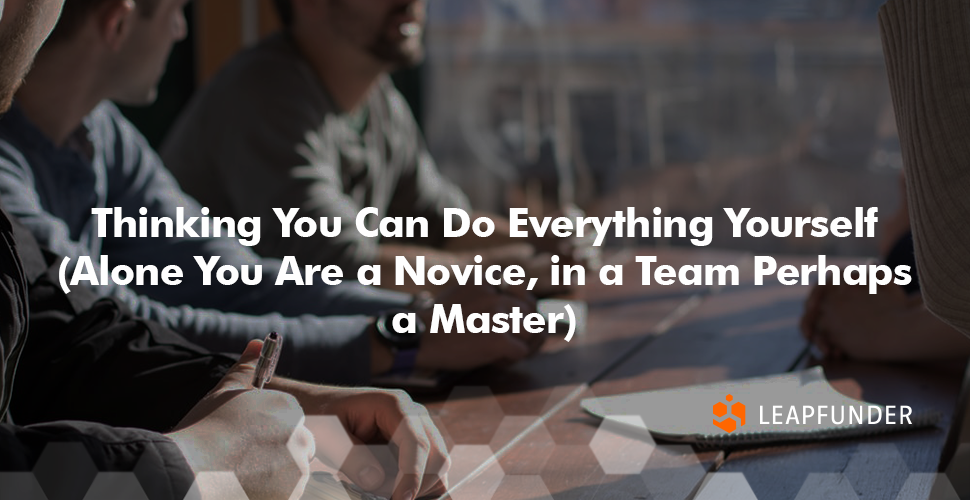In our new ‘Guide to Investing’ blog series, we lead you through seven steps of investing. The third blog in the series is dedicated to analysing a startup and collecting other people’s opinions and experiences to help you make smarter investing decisions. Stop thinking you can do everything yourself!
Analysing the startup
Seed investing in startups is complex because there isn’t much information available to base your decisions on. Listed companies have yearly income statements and balance sheets available. A Private Equity player has plenty of information for his Due Diligence. Even an early stage Venture Capital company can usually still look at several years of track record for a startup. There is no such thing for Seed investments in a startup. There are only a few months, or a couple of years, of track record to look at. No one can crunch the numbers and create an investment report based on them. You have make up your mind yourself.
There are a lot of subtle things you have to look at as an early-stage startup investor, including the product, the market and the team. The team is especially important because over time they shape the product and the organisation based on their ability. A good team can re-shape the product, target market, and whatever else needs to be fixed. Unfortunately, there aren’t a lot of sensible tools that investors can use to analyse teams.
In practice, investors rely on their own gut feeling, but their own gut feeling is just their own gut feeling. For this reason it’s often better for investors to surround themselves with other investors with different backgrounds and different types of experiences. Those perspectives can help you analyse or form an opinion about a founder team and a startup proposition. Often investors get a lot further simply by talking out loud with the other investors: it’s a good way to analyse and put some order into your own thoughts.
Investor groups
In the end you have to make your own decision: normally investor groups are just informal social groups, and everyone decides for themselves. However, you can consider other ways of going about this. Some investor groups work with joint decision making. It can be through a majority vote, or through unanimous agreement, or you can even experiment with ‘wild card’ special blocking or promotion rights in the hands of some investors. There is no single formula, but you can experiment.
In investor groups, we sometimes see that different persons can take care of a specific region for deal scouting. If you’re working with a group of investors, the others could introduce you to companies that you would normally never meet. Everybody grows and has better opportunities coming their way.
It is common for an informal investor to be a generalist with a defined investment focus. Some investors will say that they are specialised in a specific domain, but when you look at their portfolio it doesn’t always match what they say. That’s fine: investing will always be opportunistic in the end. If you don’t have a specific focus, you can still contribute to your investor group, since your own experience and perspective will add strength to the whole.
If you don’t feel you have enough investor friends yet: Leapfunder’s Investor Round Table Session is an event where investors meet regularly and where valuable connections are made. Join one of our meetings and get connected to the startup ecosystem.
To learn more about investing stay tuned for more knowledge.


